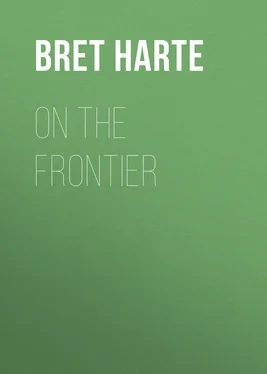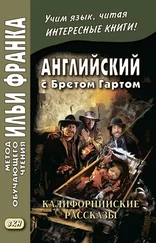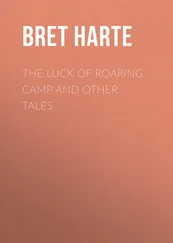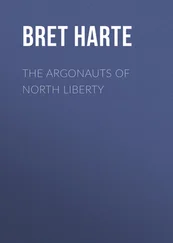Bret Harte - On the Frontier
Здесь есть возможность читать онлайн «Bret Harte - On the Frontier» — ознакомительный отрывок электронной книги совершенно бесплатно, а после прочтения отрывка купить полную версию. В некоторых случаях можно слушать аудио, скачать через торрент в формате fb2 и присутствует краткое содержание. Жанр: foreign_sf, literature_19, foreign_antique, foreign_prose, на английском языке. Описание произведения, (предисловие) а так же отзывы посетителей доступны на портале библиотеки ЛибКат.
- Название:On the Frontier
- Автор:
- Жанр:
- Год:неизвестен
- ISBN:нет данных
- Рейтинг книги:4 / 5. Голосов: 1
-
Избранное:Добавить в избранное
- Отзывы:
-
Ваша оценка:
- 80
- 1
- 2
- 3
- 4
- 5
On the Frontier: краткое содержание, описание и аннотация
Предлагаем к чтению аннотацию, описание, краткое содержание или предисловие (зависит от того, что написал сам автор книги «On the Frontier»). Если вы не нашли необходимую информацию о книге — напишите в комментариях, мы постараемся отыскать её.
On the Frontier — читать онлайн ознакомительный отрывок
Ниже представлен текст книги, разбитый по страницам. Система сохранения места последней прочитанной страницы, позволяет с удобством читать онлайн бесплатно книгу «On the Frontier», без необходимости каждый раз заново искать на чём Вы остановились. Поставьте закладку, и сможете в любой момент перейти на страницу, на которой закончили чтение.
Интервал:
Закладка:
CHAPTER III
When Father Pedro saw the yellow mules vanish under the low branches of the oaks beside the little graveyard, caught the last glitter of the morning sun on Pinto’s shining headstall, and heard the last tinkle of Antonio’s spurs, something very like a mundane sigh escaped him. To the simple wonder of the majority of early worshipers—the half-breed converts who rigorously attended the spiritual ministrations of the Mission, and ate the temporal provisions of the reverend fathers—he deputed the functions of the first mass to a coadjutor, and, breviary in hand, sought the orchard of venerable pear trees. Whether there was any occult sympathy in his reflections with the contemplation of their gnarled, twisted, gouty, and knotty limbs, still bearing gracious and goodly fruit, I know not, but it was his private retreat, and under one of the most rheumatic and misshapen trunks there was a rude seat. Here Father Pedro sank, his face towards the mountain wall between him and the invisible sea. The relentless, dry, practical Californian sunlight falling on his face grimly pointed out a night of vigil and suffering. The snuffy yellow of his eyes was injected yet burning, his temples were ridged and veined like a tobacco leaf; the odor of desiccation which his garments always exhaled was hot and feverish, as if the fire had suddenly awakened among the ashes.
Of what was Father Pedro thinking?
He was thinking of his youth, a youth spent under the shade of those pear trees, even then venerable as now. He was thinking of his youthful dreams of heathen conquest, emulating the sacrifices and labors of Junipero Serra; a dream cut short by the orders of the archbishop, that sent his companion, Brother Diego, north on a mission to strange lands, and condemned him to the isolation of San Carmel. He was thinking of that fierce struggle with envy of a fellow creature’s better fortune that, conquered by prayer and penance, left him patient, submissive, and devoted to his humble work; how he raised up converts to the faith, even taking them from the breast of heretic mothers.
He recalled how once, with the zeal of propagandism quickening in the instincts of a childless man, he had dreamed of perpetuating his work through some sinless creation of his own; of dedicating some virgin soul, one over whom he could have complete control, restricted by no human paternal weakness, to the task he had begun. But how? Of all the boys eagerly offered to the Church by their parents there seemed none sufficiently pure and free from parental taint. He remembered how one night, through the intercession of the Blessed Virgin herself, as he firmly then believed, this dream was fulfilled. An Indian woman brought him a Waugee child—a baby-girl that she had picked up on the sea-shore. There were no parents to divide the responsibility, the child had no past to confront, except the memory of the ignorant Indian woman, who deemed her duty done, and whose interest ceased in giving it to the Padre. The austere conditions of his monkish life compelled him to the first step in his adoption of it—the concealment of its sex. This was easy enough, as he constituted himself from that moment its sole nurse and attendant, and boldly baptized it among the other children by the name of Francisco. No others knew its origin, nor cared to know. Father Pedro had taken a muchacho foundling for adoption; his jealous seclusion of it and his personal care was doubtless some sacerdotal formula at once high and necessary.
He remembered with darkening eyes and impeded breath how his close companionship and daily care of this helpless child had revealed to him the fascinations of that paternity denied to him; how he had deemed it his duty to struggle against the thrill of baby fingers laid upon his yellow cheeks, the pleading of inarticulate words, the eloquence of wonder-seeing and mutely questioning eyes; how he had succumbed again and again, and then struggled no more, seeing only in them the suggestion of childhood made incarnate in the Holy Babe. And yet, even as he thought, he drew from his gown a little shoe, and laid it beside his breviary. It was Francisco’s baby slipper, a duplicate to those worn by the miniature waxen figure of the Holy Virgin herself in her niche in the transept.
Had he felt during these years any qualms of conscience at this concealment of the child’s sex? None. For to him the babe was sexless, as most befitted one who was to live and die at the foot of the altar. There was no attempt to deceive God; what mattered else? Nor was he withholding the child from the ministrations of the sacred sisters; there was no convent near the Mission, and as each year passed, the difficulty of restoring her to the position and duties of her sex became greater and more dangerous. And then the acolyte’s destiny was sealed by what again appeared to Father Pedro as a direct interposition of Providence. The child developed a voice of such exquisite sweetness and purity that an angel seemed to have strayed into the little choir, and kneeling worshipers below, transported, gazed upwards, half expectant of a heavenly light breaking through the gloom of the raftered ceiling. The fame of the little singer filled the valley of San Carmel; it was a miracle vouchsafed the Mission; Don Jose Peralta remembered, ah yes, to have heard in old Spain of boy choristers with such voices!
And was this sacred trust to be withdrawn from him? Was this life which he had brought out of an unknown world of sin, unstained and pure, consecrated and dedicated to God, just in the dawn of power and promise for the glory of the Mother Church, to be taken from his side? And at the word of a self-convicted man of sin—a man whose tardy repentance was not yet absolved by the Holy Church. Never! never! Father Pedro dwelt upon the stranger’s rejection of the ministrations of the Church with a pitiable satisfaction; had he accepted it, he would have had a sacred claim upon Father Pedro’s sympathy and confidence. Yet he rose again, uneasily and with irregular steps returned to the corridor, passing the door of the familiar little cell beside his own. The window, the table, and even the scant toilette utensils were filled with the flowers of yesterday, some of them withered and dry; the white gown of the little chorister was hanging emptily against the wall. Father Pedro started and trembled; it seemed as if the spiritual life of the child had slipped away with its garments.
In that slight chill, which even in the hottest days in California always invests any shadow cast in that white sunlight, Father Pedro shivered in the corridor. Passing again into the garden, he followed in fancy the wayfaring figure of Francisco, saw the child arrive at the rancho of Don Juan, and with the fateful blindness of all dreamers projected a picture most unlike the reality. He followed the pilgrims even to San Jose, and saw the child deliver the missive which gave the secret of her sex and condition to the Father Superior. That the authority at San Jose might dissent with the Padre of San Carmel, or decline to carry out his designs, did not occur to the one-idea’d priest. Like all solitary people, isolated from passing events, he made no allowances for occurrences outside of his routine. Yet at this moment a sudden thought whitened his yellow cheek. What if the Father Superior deemed it necessary to impart the secret to Francisco? Would the child recoil at the deception, and, perhaps, cease to love him? It was the first time, in his supreme selfishness, he had taken the acolyte’s feelings into account. He had thought of him only as one owing implicit obedience to him as a temporal and spiritual guide.
“Reverend Father!”
He turned impatiently. It was his muleteer, Jose. Father Pedro’s sunken eye brightened.
“Ah, Jose! Quickly, then; hast thou found Sanchicha?”
Читать дальшеИнтервал:
Закладка:
Похожие книги на «On the Frontier»
Представляем Вашему вниманию похожие книги на «On the Frontier» списком для выбора. Мы отобрали схожую по названию и смыслу литературу в надежде предоставить читателям больше вариантов отыскать новые, интересные, ещё непрочитанные произведения.
Обсуждение, отзывы о книге «On the Frontier» и просто собственные мнения читателей. Оставьте ваши комментарии, напишите, что Вы думаете о произведении, его смысле или главных героях. Укажите что конкретно понравилось, а что нет, и почему Вы так считаете.












